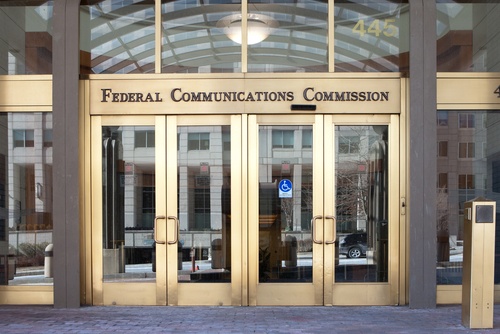Key Takeaways
- Vice President J.D. Vance says threats against ABC over Jimmy Kimmel were just an FCC commissioner’s joke.
- Vance argues the Trump administration has taken zero action to silence TV hosts.
- He contrasts this with claims that the Biden administration pressured social platforms to censor conservatives.
- FCC Commissioner Brendan Carr warned networks they must act on Kimmel’s remarks or face further work from the FCC.
- Former President Trump vowed to test ABC’s loyalty after Kimmel returned to air.
During an event in Charlotte, North Carolina, Vice President J.D. Vance hit back at critics who say the government pressured Disney and ABC to pull Jimmy Kimmel’s show. A reporter asked him to explain how his strong belief in free speech matches up with the so-called FCC pressure on networks. In response, Vance dismissed the idea that any real government action took place. He pointed out that Kimmel remained on air and blamed low ratings if he didn’t.
The Reporter’s Question on FCC Pressure
At the heart of this controversy lies a simple question: Did the FCC pressure Disney to silence Jimmy Kimmel? The reporter noted a tweet from FCC Commissioner Brendan Carr that criticized late-night hosts and hinted at tougher measures if networks didn’t act. Therefore, some see that as a sign of direct government interference. However, Vance insists no formal action ever came from the Trump administration.
Vance’s Free Speech Defense
Vance made it clear that the Trump White House never told any network to cut off Kimmel or any other commentator. He said, “What government pressure have we brung to bear? Zero.” Moreover, he argued that if Kimmel wasn’t back on air, it was due to poor jokes and low ratings, not government orders. Consequently, he framed the controversy as a misunderstanding of a joke made on social media.
Comparing Administrations on Censorship Claims
Next, Vance drew a contrast with the Biden administration. He claimed that conservatives on social platforms faced real censorship after Joe Biden took office. He said the White House “picked up the phone” and asked platforms to censor political opponents. In his view, that amounts to genuine government interference, unlike the lighthearted social media jab from an FCC commissioner under Trump.
The FCC Commissioner’s Role in the Debate
In fact, Brendan Carr went beyond a simple tweet. He told a popular influencer that networks could “do this the easy way or the hard way.” He warned that if ABC didn’t act on Kimmel’s comments about the murder of Charlie Kirk, the FCC would have “additional work” ahead. He argued that any network holding an FCC license must serve the public interest, including avoiding one-sided political satire.
Why This Matters for Free Speech
Free speech experts say that threat of regulatory action can chill commentary even without formal orders. When an agency head suggests tougher measures, networks may self-censor. Consequently, late-night hosts and producers might avoid edgy topics to dodge potential fines or investigations. Therefore, even a casual warning can carry weight in the media world.
Trump’s Ongoing Push on ABC and Disney
After Kimmel returned to air on Tuesday, former President Trump renewed his attack on ABC and Disney. He suggested he might “test ABC” again, recalling a past dispute that netted him millions. He claimed this latest battle “sounds even more lucrative.” That statement reinforced perceptions that Trump uses financial threats to influence media decisions.
Potential Effects on Broadcasters
So what happens next? Networks must balance creative freedom with the risk of regulatory scrutiny. If they ignore potential FCC pressure, they might face investigations or new rules. On the other hand, giving in could undermine free speech by setting a precedent for government influence. As a result, broadcasters find themselves in a tight spot between satire and seriousness.
Public Reaction and Industry Response
Many viewers have weighed in on social media. Some cheer Vance’s defense of free speech. Others worry that even joking threats from regulators erode First Amendment values. Industry insiders say the FCC rarely punishes broadcasters for content alone, but they admit that the prospect of an inquiry can change programming decisions behind the scenes.
Next Steps in the Controversy
Moving forward, all eyes are on the FCC. Will Commissioner Carr follow through or let the matter slide? Meanwhile, networks will watch for any formal rule changes. In addition, political leaders on both sides will use this case to argue for or against stronger media regulations. Therefore, the debate over free speech and government influence shows no signs of slowing down.
Conclusion
In the end, Vice President Vance insists that no real FCC pressure ever came from the Trump White House. He labels the commissioner’s warning a harmless joke on social media. Yet critics remain uneasy about any threat of regulatory action. As the story unfolds, it highlights the delicate balance between protecting free speech and ensuring broadcasters serve the public interest.
What exactly did Vance say about FCC pressure?
Vance said that the Trump administration never forced ABC or Disney to remove Jimmy Kimmel’s show. He called the FCC commissioner’s social media remark “just a joke” and noted that no official action occurred.
How did Commissioner Carr describe the situation?
Brendan Carr told a MAGA influencer that networks could “do this the easy way or the hard way.” He warned they must address Kimmel’s comments or face extra work from the FCC.
Why is this debate important for free speech?
Even informal threats from regulators can lead broadcasters to self-censor. Showing any sign of government pressure risks chilling open discussion and satire on TV.
What might this mean for future media rules?
If the FCC pursues formal action, it could set a precedent for regulating commentary. Conversely, letting the issue drop might reassure producers but leave questions about the FCC’s influence unanswered.
